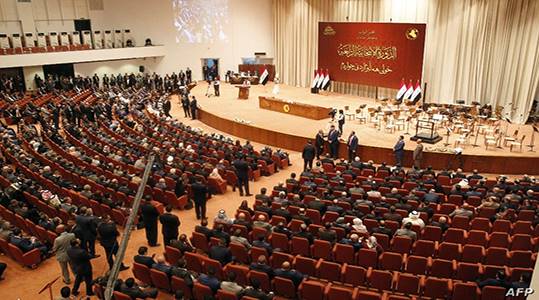The Iraqi parliament voted, during a regular session, on the borrowing law, which gives the government authorization to resort to borrowing, to bypass the financial crisis that is ravaging the country, as a result of global low oil prices, amid fears of the consequences of the law on the country.
There was a prior political agreement between the political blocs to pass the law, because of the country's need for it in light of the suffocating financial crisis.
The government asked the parliament to increase the volume of borrowing within the law to overcome the crisis, and in this context, MP Ahmed Al-Saffar said, "the government asked the parliament to increase the borrowing after the external borrowing was only $5 billion, and the internal $15 trillion Iraqi dinars, for a period of two months."
Al-Saffar explained that "these claims came in order to secure the salaries of employees for six months, and to provide the needs and supplies necessary for the Ministry of Health," noting that "the government will build a budget for the rest of the current year 2020 according to the size of the borrowing that it requested," noting that "the Finance Committee asked from the government to send the budget to Parliament. "
Source (The New Arab Newspaper, Edited)

